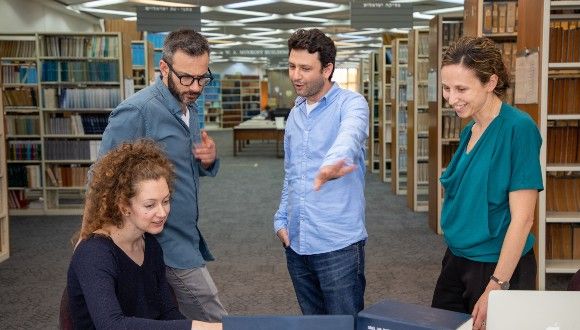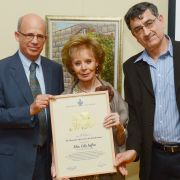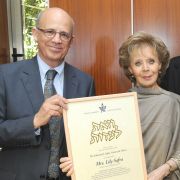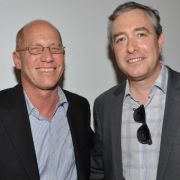Are We Our Brother’s Keeper?
Should wealthy countries consider the needs and interests of developing countries as they conclude large COVID-19 vaccine contracts for their own citizens? Should international conglomerates be held accountable for the negative effects their business contracts have on local residents and their environment?
These are the kinds of questions that Dr. Mirthe Jiwa, a scholar from Holland, is exploring as part of her post-doctoral fellowship at TAU’s Edmond J. Safra Center for Ethics at Tel Aviv University. In a sense, she is considering the age-old question of whether, in today’s complex world, we are our brother’s keeper.
Since its founding in 2012, the Edmond J. Safra Center for Ethics, based at TAU’s Buchmann Faculty of Law, has hosted 99 fellows from top international institutions, with 11 fellows this year. This year’s fellows, like Jiwa, are focusing their research on the theme of “Markets, Ethics, and the Law.”
Ethics on the Global Stage
“At the heart of our academic model is the in-depth study of changing interdisciplinary themes, chosen from within the broad world of ethics and its relevance to various aspects of human society,” says Prof. Hanoch Dagan, Center Director.
In recent years, the Center has positioned itself as a global focal point for ethics scholars. It has convened several high-powered international conferences, including joint events with Yale, Columbia and Cornell Universities.
Moreover, most Edmond J. Safra Ethics Fellows have continued on to prestigious programs or positions in Israel and abroad. For example, Dr. Klaas Henrik Eller, a 2017-19 visiting scholar and 2019-20 fellow, secured a tenure-track faculty position at the University of Amsterdam, a leading European law school.
“Through the Center and the philanthropic foundation named after her late husband, Ms. Lily Safra commemorates Edmond's legacy and his great dedication to the advancement of human society,” says Prof. Dagan. “We are grateful for the Foundation’s continued support, which includes building dedicated space for the Center in a planned new building for the law complex.”
A Vibrant Community
Jiwa became acquainted with TAU when she presented at an Edmond J. Safra Center for Ethics conference in 2019. “I immediately felt at home,” says Jiwa, who hails from the Netherlands. “The Center has a vibrant academic community and I really liked the atmosphere in Tel Aviv.”
Because of the pandemic, though, she has remained in Amsterdam for the time being. “But even meeting online we have managed to create a sense of togetherness.”
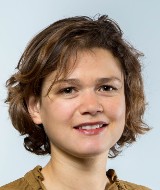 Her research at TAU expands on her doctoral thesis, conducted at the Amsterdam Law School’s Center for Transformative Private Law. There, she investigated how contract law disregards and marginalizes certain people and forms of speech. Now, Jiwa is examining how people who have been traditionally excluded from fully participating in contractual arrangements—but are significantly affected by them—can be given a voice.
Her research at TAU expands on her doctoral thesis, conducted at the Amsterdam Law School’s Center for Transformative Private Law. There, she investigated how contract law disregards and marginalizes certain people and forms of speech. Now, Jiwa is examining how people who have been traditionally excluded from fully participating in contractual arrangements—but are significantly affected by them—can be given a voice.
As the global pandemic demonstrates, we live in an increasingly interconnected world, she notes. Contractual partners are never isolated players, and contracts always and inevitably affect others.
Dr. Mirthe Jiwa
“Take for instance the issue of vaccine contracts. The richest nations have managed to secure billions of doses of COVID-19 vaccines while developing economies struggle to access supplies,” says Jiwa. “In part, this unequal distribution is facilitated and enabled by contracts—or the absence thereof.”
Public Health, Persuasion and Politics
Another Edmond J. Safra Ethics fellow, Clareta Treger, brings to TAU 10 years of experience as an intelligence officer in the Israel Defense Forces and a strategic planner at the Ministry of Public Security.
Her desire to contribute to society through public service led her to research how citizens perceive policies and which ones they prefer. She hopes this research will position her as an academic policy expert.
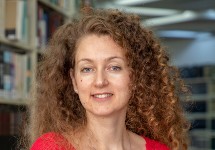 Treger’s PhD thesis, which she is pursuing at the School of Political Science, Government and International Affairs at the Gordon Faculty of Social Sciences, looks at public attitudes toward regulations and policies that aim to protect individuals from themselves, known as paternalistic policies. Such policies can be used to achieve societal goals ranging from reducing smoking and limiting working hours, to resolving moral dilemmas with legal frameworks for euthanasia and COVID-19 containment. Her main hypothesis, supported by her empirical study, is that individuals are willing to accept Clareta Treger. Photo: Moshe Bedarshi government coercion when it promotes their basic needs, such as safety and health.
Treger’s PhD thesis, which she is pursuing at the School of Political Science, Government and International Affairs at the Gordon Faculty of Social Sciences, looks at public attitudes toward regulations and policies that aim to protect individuals from themselves, known as paternalistic policies. Such policies can be used to achieve societal goals ranging from reducing smoking and limiting working hours, to resolving moral dilemmas with legal frameworks for euthanasia and COVID-19 containment. Her main hypothesis, supported by her empirical study, is that individuals are willing to accept Clareta Treger. Photo: Moshe Bedarshi government coercion when it promotes their basic needs, such as safety and health.
“When do people accept coercive measures and when do they prefer ‘softer’ policies, such as nudges?” asks Treger, who is studying under the direction of Profs. Michal Shamir and Yotam Margalit.
She is currently reviewing data from a recent survey she administered among some 800 Israelis to assess whether and how the pandemic has affected their attitudes toward government coercion.
“The different COVID-19 containment policies raised a debate over the appropriate boundaries of state regulation,” Treger says. “The pandemic highlighted the tension between personal liberties and other factors such as public health, personal health and the economy.”
“As an Edmond J. Safra Fellow, I have the opportunity to focus on the ethical aspects of government paternalism,” Treger concludes.
By Judith Sudilovsky


